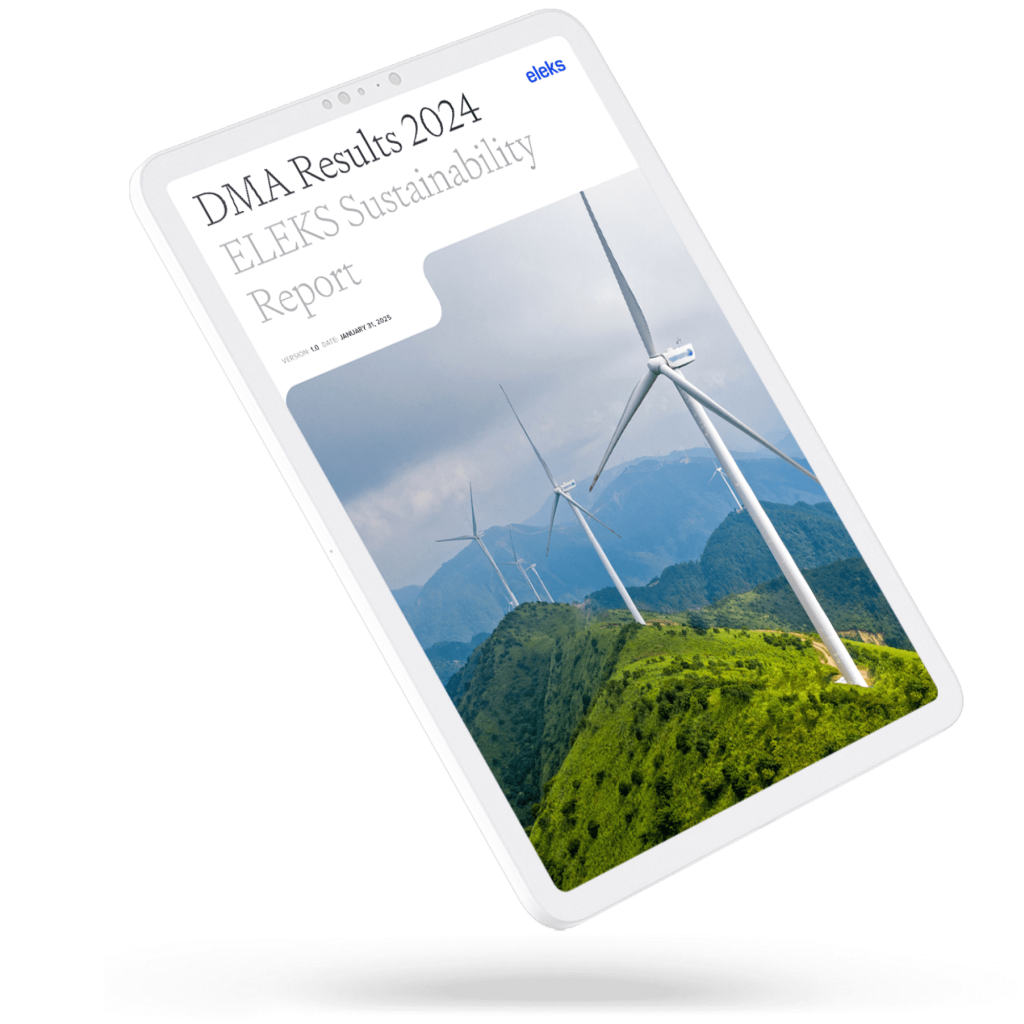The energy revolution in Europe is gathering pace. Electric vehicles (EVs), once seen as a technology of the future, have become a symbol of the shift to sustainable energy and independence from fossil fuels. But are they really as "green" and cost-effective as marketing suggests?
In our conversation with Lyubomyr Matsekh, Sustainability Consultancy Lead at ELEKS, we explore the opportunities and challenges facing the EU, businesses, and consumers on the road to electrification.
How are EVs driving change in Europe?
The EU views electric vehicles as a catalyst for economic transformation, aiming for a full phase-out of internal combustion engines by 2035. Automakers are investing heavily in electrification but face serious hurdles, including limited in-house resources and China’s dominance in battery production. Chinese EVs are often cheaper, more practical, and reach the market faster, posing a competitive challenge to European brands.
What are the biggest challenges facing Europe's auto industry today?
Germany is already seeing workforce reductions and supplier bankruptcies. European automakers are losing sales markets, grappling with high costs, and lack a clear long-term strategy.
1. Infrastructure gaps
EV adoption is impossible without robust infrastructure:
- Cities lack sufficient charging points, especially in high-rise residential areas.
- Installing home charging stations is expensive.
- Experiments with feeding power back to the grid from cars remain impractical for typical users.
2. Subsidies and economic attractiveness
Government subsidies once stimulated solar and private generation. These are now being reduced, making investments in renewables less attractive. The market is slowing, and some technologies—such as vehicle-to-grid schemes—are losing their appeal.
3. Grid stability and blackout risk
Examples from Spain and Portugal show that an oversupply of "green" energy combined with weak infrastructure can trigger large-scale blackouts. This underscores the need for parallel investment in grid modernisation, regional balancing and integration of new generation capacity.
What is the environmental paradox of EVs?
Despite "green" marketing, EVs aren’t always as eco-friendly as they seem because:
- Battery manufacturing and logistics carry a significant carbon footprint.
- Battery recycling remains a challenge.
- Compared with public transport, EV efficiency is limited at a system level.
Tourism and local use cases: Pairing EV infrastructure with tourism routes can stimulate demand and create new usage scenarios—e.g., in national parks and recreational areas—helping EVs scale in focused niches.
What is the future of electrification from a global and local perspective?
Europe faces constrained access to battery resources (lithium, cobalt, nickel), much of which lies outside the EU. Countries in South America, Africa, and parts of Asia tend to rely on cheaper fossil fuels, challenging the universality of "green" policy. In Ukraine, electrification remains strategic—especially decentralising the power system to improve resilience against attacks and blackouts.
Conclusions
The EV revolution is not only about new technologies; it entails a sweeping transformation of infrastructure, energy systems, and the broader economy. The future points to hybrid models in which EVs coexist with traditional engines, while the development of infrastructure and power grids will ultimately determine the success of the "green" transition.

FAQs
Green energy refers to energy that is produced from natural, renewable sources that do not harm the environment. Examples include solar, wind, hydro (water), and geothermal energy.
Energy software development is a specialised field that creates software applications and platforms designed to monitor, manage, optimise, and control energy systems. This includes developing Energy Management Information Systems (EMIS), smart grid technologies, renewable energy management platforms, and industrial energy optimisation tools.
Related insights








The breadth of knowledge and understanding that ELEKS has within its walls allows us to leverage that expertise to make superior deliverables for our customers. When you work with ELEKS, you are working with the top 1% of the aptitude and engineering excellence of the whole country.

Right from the start, we really liked ELEKS’ commitment and engagement. They came to us with their best people to try to understand our context, our business idea, and developed the first prototype with us. They were very professional and very customer oriented. I think, without ELEKS it probably would not have been possible to have such a successful product in such a short period of time.

ELEKS has been involved in the development of a number of our consumer-facing websites and mobile applications that allow our customers to easily track their shipments, get the information they need as well as stay in touch with us. We’ve appreciated the level of ELEKS’ expertise, responsiveness and attention to details.

